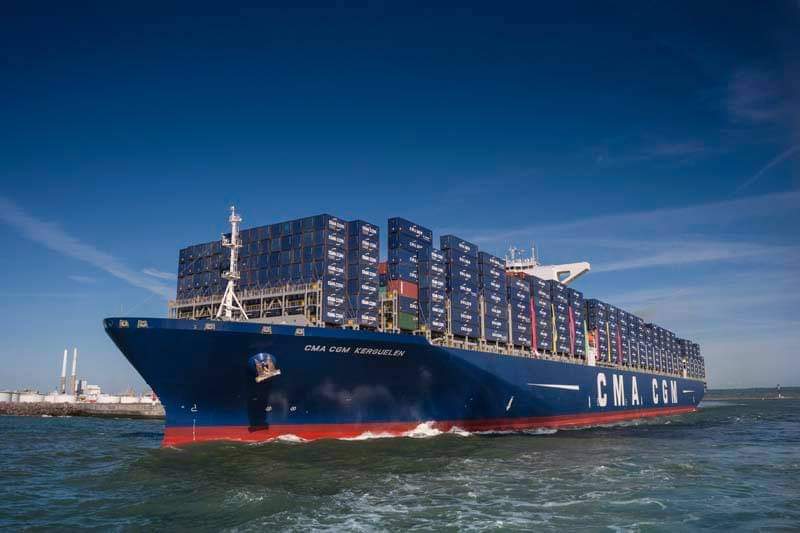The Maritime Security Providers Association of Nigeria (MASPAN) has provided a critical insight into how shipowners and importers lose millions of dollars to complicated drug trafficking and stowaway investigations in countries without adequate legal framework to deal with such cases in a timely manner.
The Chairman, AMANO/ MASPAN Planning Committee, Mr. Emmanuel Maiguwa revealed this during a press conference which held at the secretariat of Maritime Reporter’s Association of Nigeria (MARAN) on Friday.
According to the body , a ship can be detained for several weeks or months while investigating to determined the source and suspects in a case of drug discovery in the ship when it calls at a port.
Similarly, investigating the country of origin of stowaways discovered in a ship could be herculean, requiring the detention of an affected vessel for several weeks and leading to huge losses in time and money.
These losses incurred by shipowners are shared or passed wholly to the Importers who are users of the shipowners services.
MASPAN is convinced that this is part of the reasons importers in West African countries, including Nigeria continue to pay billions of dollars annually as war risk charges even when the countries are peaceful and with no incidents of piracy recorded in the Gulf of Guinea in the last two years.

Maiguwa
Also, MASPAN explained that seafarers are not willing to work in countries without legal clarity as to how to deal with drug and stowaway discoveries in a ship as complications from these cases could mean harsh realities for them.
It is in the light of the forgoing that MASPAN and the Alumni of Maritime Academy of Nigeria, Oron (AMANO) are bringing shipping industry stakeholders and relevant drug regulatory agencies together to brainstorm on Nigeria’s capacity to handle drug trafficking and stowaway investigations within the shortest possible time-frame.
Chairman of the summit plannjng committee, Emmanuel Maiguwa said: “If we have a scenerio where drugs have been discovered in a ship, the regulatory agency would have to detain the ship for investigations. That process will take a very long time and during that process, a ship will have to foot the cost and other admistrative costs. So ships will always be afraid to do business in countries where they are likely to be detained for too long when this happens.
“This is what we want to bring to the knowledge of the industry and find a solution that allows the country to handle these issues within a short time. We are working with the incidents provided by countries where this type of matters are handled and cleared with 24 hours.
“The maritime summit on Drug Smuggling and Human Trafficking by Ship will be chaired by the Honourable Minister of Marine and Blue Economy, Gboyega Oyetola, who has been mandated to chart the course for the new ministry by His Excellency, President Bola Ahmed Tinubu at Eko hotels, Thursday, August 22, 2024 by 10am”
He encouraged maritime stakeholders with interest to contact the summit’s planning committee to register for the event which is scheduled to hold at Eko Hotel, Victoria Island, Lagos on August 22, 2024.

L-R: Member, MASPAN/AMANO Planning Committee, Helen Mba; Publicity Secretary, Oamien Ailemen; Executive Assistant to MASPAN/AMANO President, Gloria Theophilus; Chairman, MASPAN/AMANO Planning Committee, Emmanuel Maiguwa; MARAN President, Godfrey Bivbere; Secretary, MASPAN/ AMANO Planning Committee, Frances Inoma; and Co-Chairperson, Chief Agassi Peter, shortly after the press conference by the MASPAN/ AMANO event planning committee at MARAN Secretariat on Friday.
Expressing concerns over such incidents, Maiguwa, who is Chief Executive Officer, Bricks Limited, a maritime security firm, disclosed that ships have been detained for several months while their crew were placed on trial and forced to remain without seeing their families for several years in cases of drug smuggling.
Maiguwa continued: “On the part of Human Trafficking, cases of stowaways, especially in Lagos ports, have continued to cause delays to vessels when they are found before vessel departure. Cases, where discoveries were not made before departure, have continued to burden shipowners because of the very complex administrative protocols involved in handling stowaways on ships.
“Having considered the disruption, these activities can pose to shipping operations, increased cost, the trauma it could have on seafarers, and how counterproductive it could be to a maritime country like Nigeria that is struggling to realize the potential of her “blue economy”, we have come together to bring stakeholders to discuss these issues with a goal to arrive at a solution that serves the industry.
“The goal is to align with critical agencies in making sure that drug and human smuggling and trafficking in the maritime domain are reduced, if not eradicated, with perpetrators penalized in a way innocent parties are not made to pay the price, and the industry is not deprived of its growth potentials.”
At the end of this conference, we hope that stakeholders will arrive at workable solutions and mandate a working group to ensure the actualization of the resolutions reached.


